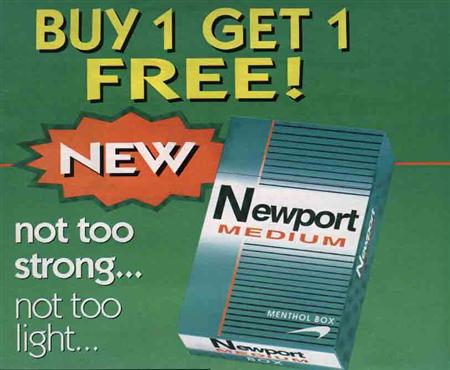For about a dozen years I commuted into London to work. In the last two or three years before leaving paid work for good, and saying goodbye to the unwelcome commute, my evening walk from the office to the station was interspersed with calls for me to take a free newspaper. There were two main vendors: the one at the beginning of my walk would lazily thrust a London Paper into my hand, only for it to be batted away — every day, without fail. The one just round the corner from the station would call out, “Free Lite!”, but make no atempt to hand me a paper.
I took neither. These are not newspapers, they are the means by which advertisers sell their dreams to people who have lives so empty they need filling with stuff — gadgets, holidays, fitness clubs, cars, three piece suites…all padding with no content. The “free” papers eagerly taken by commuters are not free at all; they are gateways into the consumer’s soul, and the advertisers pay top dollar for entry.
Think about the next “buy one, get one free” offer you see. Why are they offering it; what is in it for the seller? The “free” item tempts the buyer into taking something they would otherwise ignore; it changes their behaviour and habits. It creates loyalty. The seller knows exactly what it is doing — that “free” item will pay off in the end.
This has got me thinking about what “free” means. In a commercial sense, nothing is for free — commerce and, more widely, the global economy, has to grow in order to survive, therefore even staying still will be catastrophic for the system. When you read or hear about growth “stagnating” this negative turn of phrase is intentional — without economic growth, civilization collapses. We are sold the lie that we need growth and, boy, are we sold it big time. Believe me, no company would give anything away for free unless they thought it would lead to a profit.
I am a pariah. My world is so cheap that I am considered to be economically non-viable. I am contributing to the contraction of the global economy because my net consumption of material goods has dramatically reduced, year-on-year over the past 5 years. I am having a new door installed at the back of the house — it came from my brother-in-law who was blocking up a doorway, which meant that a door I needed to replace the one that is rotting away didn’t have to be bought. I am growing my own vegetables — a few seeds, some compost and some rainwater and I am buying less food from the shops. We are having a wood burner installed at the end of the week, and much of that wood will come from people who want to get rid of scrap — I will not be buying much wood at all; nor will I be buying the gas that would otherwise have been used to heat my house.
There are few things that are free — clean air comes at a premium where most people live; clean water is at the behest of the privatised water company rather than public wells and boreholes; wildlife has to pay its way if it is to survive rather than be desecrated by “development”. But some things are really free, and I’m really enjoying myself making sure I get as much out of them as possible — and screwing the system into the bargain.
